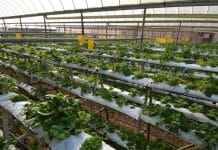It was a sunny Thursday morning in the summer of 2019. I was then working as a researcher at a cancer research institute in Europe, attending a routine research group meeting. Whilst an animated discussion was taking place, my phone started buzzing away, sounding for all the world like just any other enthusiastic WhatsApp conversation. Distracted from the discussion at hand, I took a glance at the incoming messages. They were from my sister, and she was telling me that she had just been diagnosed with breast cancer.
The rest of the meeting was a flurry of internal turmoil, denial (checking the message, again and again, convinced that I had misread it the first time), and an exercise in keeping my emotions under wraps. The rest of the day was full of hugs from my colleagues, and emphatic suggestions that I should be making my way home to be with my family. My sister was in her 30s, an age when a breast cancer diagnosis is rare, but not unheard of. Her doctors swiftly recommended that she do a genetic test, and eventually discovered that she had inherited a rare genetic predisposition to the disease. She was gently urged to advise her close relatives, who may have also inherited this predisposition, to do the same.
My sister, with her unimaginable mental and physical strength, endured all the tests and treatments for her cancer while documenting her journey openly and cheerfully on social media. With an easygoing air, she told our close cousins about her condition and conveyed the message about getting tested. A genetic test could help everyone become aware of their risks and make informed decisions on how to manage said risks, whether through prophylactic interventions or by undertaking intensified screening. To my surprise, her well-meaning message was met with silence. While I had started planning for all the relevant tests immediately, many of our cousins were reluctant. Some had a fear of knowing the results, and others had a fear that the results may affect their insurance coverage. Above all, there was an unwillingness to subject oneself to medical testing and interventions when one was seemingly healthy.
My personal experience is in no way an isolated incident. Lung cancer, which is one of the most common cancers in Malaysia, is infrequently diagnosed at the early stages of the disease when the chance of survival is at its highest. While we currently have the technology to pick up lung cancers early, individuals who have early-stage lung cancers are often asymptomatic, and simply are not systematically and routinely screened (checked) for the disease. It is heartening, however, to know that a team of clinicians, healthcare providers (for-profit organizations at that!) and academics have banded together to promote lung cancer screening among Malaysians. This program, which utilizes cutting-edge artificial intelligence to identify signs of early lung cancer in chest X-rays, may lead to more streamlined, effective, and affordable lung cancer screening programs in Malaysia. This program also aims to better understand the reasons individuals choose to deny screening and testing and to raise awareness of the life-changing effects facing one’s cancer risk can bring for oneself and one’s family.
Three years since that fateful Thursday morning, I now have a clearer picture of the human side of cancer. Indeed, it can be easier to ignore one’s risks of disease simply because one feels well at the present moment. However, the same is often true for cancer patients. My sister herself was seemingly at the height of health and early motherhood at the time of her diagnosis. Ultimately, whether or not one takes active steps to face one’s risks of disease is a personal choice. Nevertheless, I hope our story inspires others in similar situations to make informed decisions about their health and well-being.
Just what are we choosing to run away from when we choose to delay testing? Is facing the disease truly scarier than turning a blind eye?
More information on the Lung Cancer Screening Program mentioned in this article can be found here: https://www.lungcancer.net.my/free-ldct-lung-screening-programme-2/
By Assoc. Prof. Dr Felicia Chung Fei Lei, Associate Professor, School of Medical and Life Sciences, Sunway University









